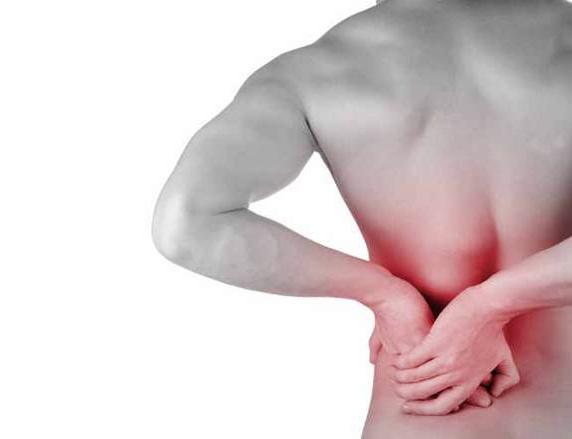Growing up I was told that Anxiety was something that didn’t exist. Stress was not a real thing. You suck stuff up and you get on with life. This possibly has it’s origins in a time when restrictions were more real than they are today, you couldn’t get butter, milk or cheese. You couldn’t panic buy because you didn’t have access to supermarkets. Basics were scarce and parents made do with questionable replacements of staples and created items out of necessity and whatever was lying around or could indeed be ‘re-used’. But anxiety is real. It’s a word that gets bantered around a lot but it exists with very grave connotations and consequences to how we live.
We’ve all been 'stressed out’ and had a stressful day at work, and these adjectives get bantered around the kitchen table at the end of the day. But stress can pass - usually with a good glass of wine or food or a great hug. The stressor leaves and we are left feeling a little easier or better. Anxiety is the next level of that commonplace phrase and takes on slightly more serious issues. Anxiety has more far reaching implications that are perhaps more invasive and more far reaching than simple stress.
The physical and psychological elements of stress, to the uninitiated can be passed off or overlooked at times. “oh its just a bit of indigestion” or “I’ve got a slight headache”. The issue is often how these seemingly innocuous elements tend to lead to BEHAVIOURAL changes and that brings about more far reaching effects and a circular symptomatic cycle that leads to anxiety conditions. The persistence of these effects have real physical effects and create damaging issues in our physical being as well as our brains and our cognitive ability.
We already know of some of the incarnations of anxiety - Post Traumatic Stress Disorder, Panic Attacks, Obsessive Compulsive Disorder… all of these terms are types of anxiety disorders and demonstrate the very real and scientific implications that anxiety has on the body. Generalised Anxiety Disorders are perhaps the more common types of this condition and they can be very mild with negligible long term impact. However, as negligible as they may seem, if these patterns last for more than 6 months, they are a very real and impactive force on our physical and mental state.
The Central Nervous System (CNS) responds to anxiety by producing hormones and chemicals in our brain in response to stress. Cortisol and adrenaline being the two most common. Whilst these are beneficial in a short term situation (such as fleeing from a lion - hey it can happen), long term and unchecked exposure to these elements creates a hyper sense of threat which effects other systems.
heart rate increases - stress on the cardiovascular system, risk of high blood pressure and coronary disease.
digestive distress - stomach acid goes unchecked, creating acidity and potentially causing ulcerations, irritation in the gut and digestive tract which can create internal bleeding and leaking of harmful fluids.
immune dysfunction - high anxiety means the brain never switches off the Sympathetic Nervous System. We don’t unwind, we don’t replenish and allow our immune system the space and time to heal what needs healing. We heal on a daily basis and we need to allow this to happen. Low immune response makes us vulnerable to infection and disease. It even downgrades vaccines in our system!
rapid breathing - places stress on our respiratory system and doesn’t allow rich oxygenated blood to enrich our system. We aren’t drawing in good amounts of oxygen and dispelling carbon dioxide. Can emphasis respiratory issues such as Asthma.
More generic conditions to keep in mind are the direct result of these systems being unable to do the work that is required for homeostasis and health.
Headaches - a lot of people suffer from this common malady. But tension headaches due to consistent worrying or obsessive concern creates tension in the facial muscles and the neck muscles. Indicators of headaches precede many common anxiety conditions due to changing seratonin levels. This releases neuropeptides and restricts blood vessels.
Muscular tension - Constant muscular tension creates an impact on fluid flow. Blood responds like a plumbing system. If the pipes are tight the pressure can increase but the flow of liquid decreases. Decreased blood flow equals bad removal of wastage product and low delivery of nutrients.
Insomnia - perhaps one of the biggest indicators of long term stress and anxiety. We don’t sleep long and we don’t sleep well. Often sleep patterns are broken, we wake up earlier and find it difficult to get to sleep because our minds are racing. This has huge repurcussions on how our body can recover and heal from simple day to day living. We need sleep to rejuvenate. No sleep means no recovery and this leads to disease.
Imagination - there is anecdotal evidence to suggest that some anxious people have difficulty imagining or imaging the best possible case scenario. The forboding of threat or worst case scenario can have an influence on anxiety conditions and in dealing with anxiety. Daniel Kahneman and Amos Tversky celebrity psychologists of the 1970’s talked about how we process decisions and sometimes those with active creative thinking can forbode doom and gloom which can relate to why we contribute to our own anxiety
It’s easy to see why such a conclave of conditions can be passed off as generic conditions or cares that don’t amount to much. Though the persistence of these types of conditions can qualify under chronic pain and that as we know, is very detrimental to our system. The combination of symptoms presents a condition that permeates into our health and inches away at our resilience which can be a perfect storm for other conditions and dis ease.
So What Can We Do
Rest and Relaxation - ensuring adequate rest is vital to ensuring immune function is at its zenith and the system is well equipped and primed to activate parasympathetic nervous activity. The balance of passive and active sides of lifestyle are vital to keep in check.
Digestive - Gamma-Aminobutyric Acid (GABA) is a neurotransmitter that helps to regulate emotional responses and this is produced in the stomach and is linked to controlling anxiety. Probiotics can assist with GABA production. Eating well. Nourishing yourself and your system and not over taxing it in times of stress or difficulty. Knowing when the danger signs are present and limiting things such as depressive or stimulating substances (coffee, alcohol, drug use, stimulants) in your daily intake.
Mindfulness Practice - taking time to spend time on your thoughts and feelings. Acknowledging them and actively paying attention to them in response to stimuli. Take responsibility for your emotions as much as you would your health. Ensure your emotional health is being assisted when needed, and regular activities that reinforce your resiliency are essential.
Breathe - this is where ancient techniques including Yoga, Qi-Gong, even Alexander Technique and Meditative practices can create a direct way to deal with anxiety. Tapping into the Vagus Nerve and downgrading the excitability of your system via diagrammatic breathing is a tangible technique and these ancient practices all cultivate these practices in practice.
Cognitive Behavioural Therapy - is a way of looking at the network of the thought process and trying to manipulate and control this to stop anxiety from spinning out of control as it feeds on itself. This type of therapy is widely used to deal with conditions before they come to a head. identifying patterns and behaviour responsible and dealing with them at the preventative level.
Exposure Therapy focuses on revisiting physical triggers that can create anxiety conditions. Used for panic attacks, activating triggers in a controlled space helps to bring awareness and control of the sufferer and empower them to control the response.
Occupy Your Thoughts - engage in actions and thoughtful processes that can help to divert your attention and worry away from your inner reflection. There is a time to turn inward but not always. Find something that is a good and healthy distraction that can downgrade excitable responses and override your inner spiral to anxiety.
Create - creative endeavours have a wonderful way of accessing different parts of our brain and keeping our activity in alternate areas of our brain. Changing focus. Simply the act of completing a creative project floods the brain with dopamine. A sense of achievement has a physical response. It can be as simple as colouring in. Change and challenge your behaviour.
Avoid Stress - taxing your body when you are full of cortisol doesn’t create a good environment for recovery (physical or emotional). Cortisol creates inflammation and by going out and creating further stress creates even more cortisol which is not a friend of the anxious mind.
Exercise - The jury is inconclusive here but there is much conjecture on exercise as a means of anxiety relief. Research shows the intense exercise does not contribute to reduced adrenalin and cortisol that moderate exercise does. And exercise whilst it can assist with ‘depression states’ does not have the same effect on anxiety levels. In other words - don’t go and smash yourself at the gym. Go for a gentle jog, walk, swim, bike ride. Keep it low key.
So - anxiety is real. As many as 1 of 4 people experience some sort of anxiety in a way shape or form on a daily basis. Sometimes anxiety can be dealt with and resolved but as many as 1 in 8 Australians ( National Health Survey: First Results, 2017–18.) suffer from high level anxiety and psychological distress. With the increasing states of unease and uncertainty currently circulating around the nation and the world, these figures are indicated to rise and create a wave of health issues within the population. It’s not time to cast it off and be flippant. It is a very real threat to our individual and collective health. Be aware and know what you can do to help identify, treat and prevent it from becoming an issue to you or your loved ones.
If this article raises any concerns for you or someone you know, please contact Beyond Blue, Relationships Australia or Anxiety Australia



